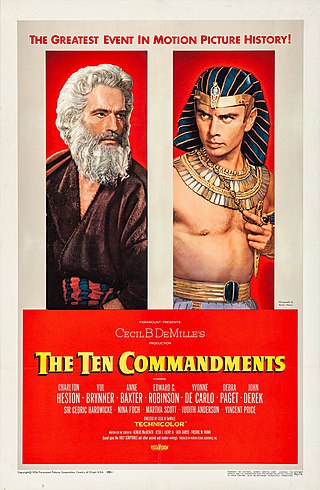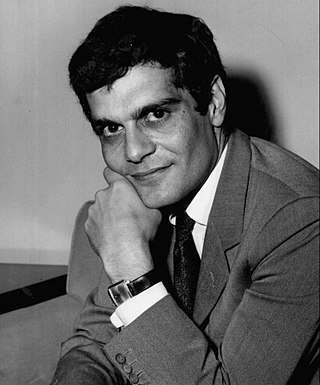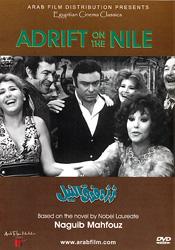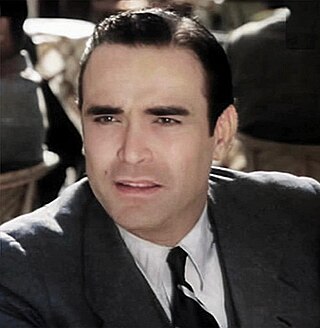A list of films produced in Egypt in 1966. For an A-Z list of films currently on Wikipedia, see Category:Egyptian films.
A list of films produced in Egypt in 1966. For an A-Z list of films currently on Wikipedia, see Category:Egyptian films.
| Title | Director | Cast | Genre | Notes | ||
|---|---|---|---|---|---|---|
| 1966 | ||||||
| Al-Kahira 30 (Cairo 30) | Salah Abu Seif | Souad Hosni, Ahmed Mazhar, Hamdy Ahmed | Drama | |||
| El mustahil (The Impossible) | Hussein Kamal | Nadia Lutfi, Kamal el-Shennawi | Drama | |||
| Mirati Modeer Aam (My Wife, the Director General) | Fatin Abdel Wahab | Salah Zulfikar, Shadia | Romantic comedy | |||
| Saghira Ala El Hob (Too Young for Love) | Niazi Mostafa | Souad Hosni, Rushdy Abaza | Romantic comedy | |||
| 3 Losoos (Three Thieves) | Hassan Al-Imam, Fatin Abdel Wahab, Kamal El Sheikh | Salah Zulfikar, Yehia Chahine, Farid Shawqi, Hind Rostom | Drama/ Comedy | |||
| A Wife from Paris (Zawga mn Paris) | Atef Salim | Salah Zulfikar, Roushdy Abaza, Nabila Ebeid | Comedy, Romance | |||
| Laylat El Zafaf (Wedding Night) | Henry Barakat | Souad Hosni, Ahmed Mazhar | Comedy | |||
Plague or The Plague may refer to:

The Ten Commandments is a 1956 American epic religious drama film produced, directed, and narrated by Cecil B. DeMille, shot in VistaVision, and released by Paramount Pictures. The film is based on the 1949 novel Prince of Egypt by Dorothy Clarke Wilson, the 1859 novel Pillar of Fire by J. H. Ingraham, the 1937 novel On Eagle's Wings by A. E. Southon, and the Book of Exodus, found in the Bible. The Ten Commandments dramatizes the biblical story of the life of Moses, an adopted Egyptian prince who becomes the deliverer of his real brethren, the enslaved Hebrews, and thereafter leads the Exodus to Mount Sinai, where he receives, from God, the Ten Commandments. The film stars Charlton Heston in the lead role, Yul Brynner as Rameses, Anne Baxter as Nefretiri, Edward G. Robinson as Dathan, Yvonne De Carlo as Sephora, Debra Paget as Lilia, and John Derek as Joshua; and features Sir Cedric Hardwicke as Seti I, Nina Foch as Bithiah, Martha Scott as Yochabel, Judith Anderson as Memnet, and Vincent Price as Baka, among others.

Omar Sharif was an Egyptian actor, generally regarded as one of his country's greatest male film stars. He began his career in his native country in the 1950s. He is best known for his appearances in American, British, French, and Italian productions. His career encompassed over 100 films spanning 50 years, and brought him many accolades including three Golden Globe Awards and a César Award for Best Actor.

The Prince of Egypt is a 1998 American animated musical drama film produced by DreamWorks Animation and released by DreamWorks Pictures. The second feature film from DreamWorks and the first to be traditionally animated, it is an adaptation of the Book of Exodus and follows the life of Moses from being a prince of Egypt to a prophet chosen by God to carry out his ultimate destiny of leading the Hebrews out of Egypt. The film was directed by Brenda Chapman, Steve Hickner, and Simon Wells, and produced by Jeffrey Katzenberg, Penney Finkelman Cox, and Sandra Rabins, from a screenplay written by Philip LaZebnik. It features songs written by Stephen Schwartz and a score composed by Hans Zimmer. The film stars the voices of Val Kilmer, Ralph Fiennes, Michelle Pfeiffer, Sandra Bullock, Jeff Goldblum, Danny Glover, Patrick Stewart, Helen Mirren, Steve Martin, and Martin Short.

Adel Emam is an Egyptian film, television, and stage actor. He is primarily a comedian, but he has starred in more serious works and, combined comedy with romance especially in his earlier secondary roles in films such as My Wife, the Director General, My Wife's Dignity, My Wife's Goblin and Virgo, all films starring Salah Zulfikar.

Tanta is a city in Egypt. With a population of 658,798, as of 2018, it is the country's fifth most populous city. Tanta is located between Cairo and Alexandria: 94 km (58 mi) north of Cairo and 130 km (81 mi) southeast of Alexandria. The capital of Gharbia Governorate, it is a center for the cotton-ginning industry. One of the major railway lines goes through Tanta. Annual festivals are held in Tanta for one week beginning on 11 October celebrating the birthday of Ahmad al-Badawi, a revered Sufi figure of the 13th century, who founded the Badawiyya Tariqa in Egypt and is buried in Ahmad Al-Badawi Mosque, the main mosque of Tanta. Tanta is known for its sweet shops and roasted chickpeas.

Ain Shams University is a public university located in Cairo, Egypt. Founded in 1950, the university provides education at the undergraduate, graduate and post-graduate levels.

Tawfiq al-Hakim or Tawfik el-Hakim was a prominent Egyptian writer and visionary. He is one of the pioneers of the Arabic novel and drama. The triumphs and failures that are represented by the reception of his enormous output of plays are emblematic of the issues that have confronted the Egyptian drama genre as it has endeavored to adapt its complex modes of communication to Egyptian society.
Middle Eastern cinema collectively refers to the film industries of West Asia and part of North Africa. By definition, it encompasses the film industries of Egypt, Iran, Bahrain, Iraq, Israel, Jordan, Kuwait, Lebanon, Palestine, Oman, Qatar, Saudi Arabia, Syria, United Arab Emirates, and Yemen. As such, the film industries of these countries are also part of the cinema of Asia, or in the case of Egypt, Africa.

Chitchat on the Nile is a 1971 film based on the 1966 novel Adrift on the Nile by Egyptian Nobel Laureate Naguib Mahfouz. The film is a member in Top 100 Egyptian films list.
The following is a list of Egyptian films. The year order is split by decade. For an alphabetical list of films currently on Wikipedia, see Category:Egyptian films.

The cinema of Egypt refers to the flourishing film industry based in Cairo, sometimes also referred to as Hollywood of the East or Hollywood on the Nile. Since 1976, the capital has held the annual Cairo International Film Festival, which has been accredited by the FIAPF. There are an additional 12 festivals. Of the more than 4,000 short and feature-length films made in MENA region since 1908, more than three-quarters were Egyptian films. Egyptian films are typically spoken in the Egyptian Arabic dialect.

Pharaoh is a 1966 epic Polish film directed by Jerzy Kawalerowicz and adapted from the eponymous novel by the Polish writer Bolesław Prus. In 1967, it was nominated for an Academy Award for Best Foreign Language Film. It was also entered into the 1966 Cannes Film Festival. It sold more than 7 million tickets in Poland, becoming one of the highest-grossing Polish films of all time. Pharaoh is among 21 digitally restored classic Polish films chosen for Martin Scorsese Presents: Masterpieces of Polish Cinema.

Salah El-Din Ahmed Mourad Zulfikar was an Egyptian actor and film producer. He started his career as a police officer in the Egyptian National Police, before becoming an actor in 1956. He is regarded as one of the most influential actors in the history of the Egyptian film industry. Zulfikar had roles in more than a hundred feature films in multiple genres during a 37-year career, mostly as the leading actor. He was one of the most dominant leading men in Egyptian cinema.
Kamal El Sheikh was an Egyptian film director. He directed 28 films between 1952 and 1987, with eight of them in the Top 100 Egyptian films list. He was known in the fifties and early sixties as "Hitchcock of Egypt" because of his influence on the cinema of the well-known British director.
Fatin Abdel Wahab was an Egyptian film director. He directed 52 films between 1949 and 1970. His 1961 film Wife Number 13 was entered into the 12th Berlin International Film Festival. His 1965 film Driven from Paradise was entered into the 4th Moscow International Film Festival.

Mahmoud Zulfikar was an Egyptian film director, producer, screenwriter, and actor. He was a major figure in Egyptian film industry.

Jasna Đuričić is a Serbian actress and academic, best known for playing the title role in the Bosnian film Quo Vadis, Aida?, which was nominated for the Academy Award for Best Foreign International Feature Film in 2021, and for which she was awarded European film award for Best actress. In Serbia, she is primarily renowned for her work in theater.

My Wife, the Director General is a 1966 Egyptian Comedy film directed by Fatin Abdel Wahab. It stars Salah Zulfikar and Shadia. The film is listed in the Top 100 Egyptian films of the 20th century.